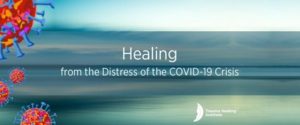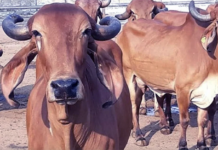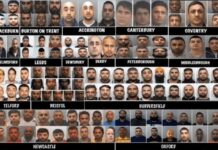High Wycombe, England (ANS) – A team that includes people serving with Wycliffe Bible Translators has developed a course to help people deal with distress caused by the coronavirus (Covid-19) pandemic. According to Wycliffe the team has been involved in the area of trauma healing for many years, and has quickly adapted its techniques to help people work through the trauma that can be caused by the pandemic.
The free course is called ‘Healing from the Distress of the COVID-19 Crisis’ and has already been published in several Western languages, including English, Spanish and French. It is now being translated into a number of non-Western languages, and been used in the UK, the USA, Malawi and Peru. There are also versions for caregivers such as nurses and for families.
Margaret Hill, who serves with Wycliffe and worked on developing the course, says: ‘The coronavirus pandemic has turned the lives of almost everybody upside down. For some, those changes have been highly traumatic – such as the loss of loved ones, jobs, or financial security. For others, the effects have been less dramatic but still have an impact – such as working from home, having children constantly at home, or being unable to finish degrees or school satisfactorily. People deal with these things differently, but they are all possible sources of trauma. So this course is really for everyone – whatever your experience of the pandemic – because we have all been affected by it.’
Participants work through scenarios and questions that help them to reflect on how they feel about what has and is happening as a result of the coronavirus outbreak. Margaret continues: ‘By considering aspects of the pandemic and its effects on you, and by bringing your concerns to God, participants are able to find healing and move on with their lives.’
Maria, who participated in the course recently, says: ‘I found that the workshop gave me space and time to reflect on the feelings I had bottled up. I realised through listening about other people’s experiences, that actually my own experiences were important, and I needed to take the time to slow down and acknowledge them for myself. This workshop was a breath of fresh air in the midst of my chaos; I was reminded of God’s everlasting love and that he is good even in bad life events.’
Another participant, Alfred, comments: ‘The course is a gentle, thoughtful, and profound way to reflect on the impact Covid-19 has had on all our lives – and how God’s love and presence sustains us through it all. Spending time along with others reflecting on how nothing can separate us from God’s love was a blessing during this time of isolation.’
The course is aimed at small groups (though it can be done individually), and can be undertaken either as one standalone lesson, with the potential to continue with further lessons, or as an extra lesson if you are already doing the wider Healing through the Wounds of Trauma: How the Church Can Help curriculum from the Trauma Healing Institute. The lesson works as one three-hour session or as three one-hour sessions.
Margaret was serving with Wycliffe in the Democratic Republic of Congo in the 1990s when civil war broke out. She was evacuated twice, and on her return ‘I became aware that the local church leaders found it hard to understand the effects of the trauma of war.’ Out of these experiences, Margaret joined with others serving with Wycliffe who had experienced the trauma of war and its effects to create the first trauma healing workshops. Within 10 years, the trauma healing course had been translated into 100 languages. It continues to be used worldwide under the leadership of the Trauma Healing Institute and the American Bible Society.






